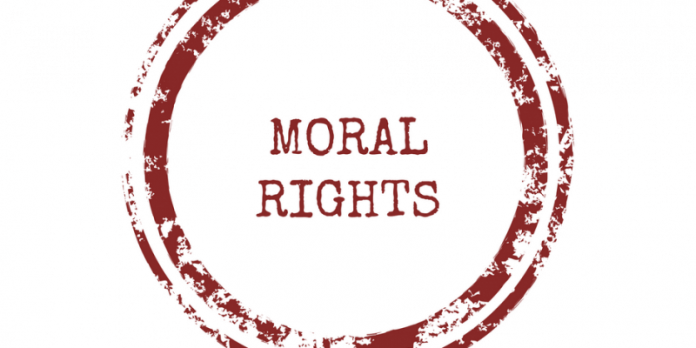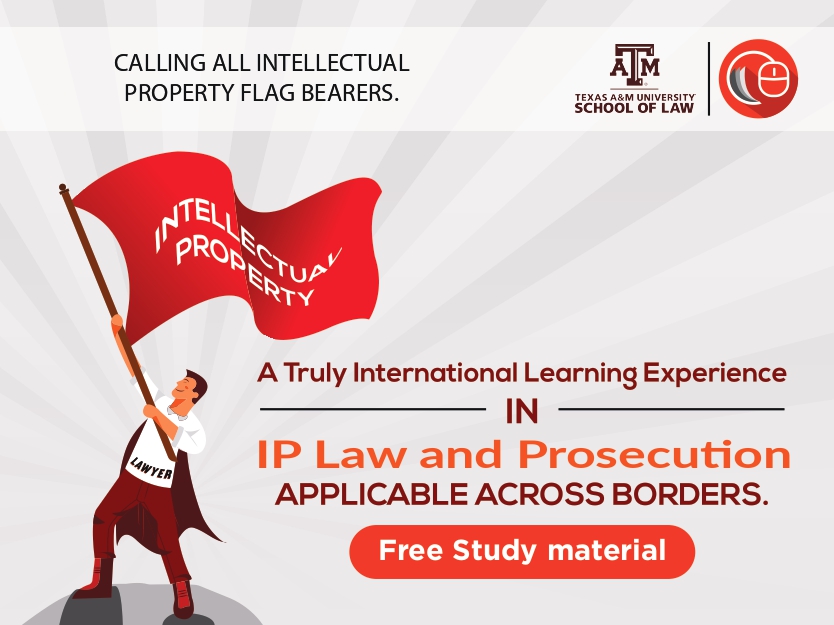This article is written by Meera Annie Koshy, pursuing a Certificate Course in Intellectual Property Law and Prosecution from LawSikho.
Table of Contents
Background
Mirzapur, a streaming television series on Amazon Prime, produced by Excel Entertainment is an Indian action crime thriller. Mirzapur Season 1 with 9 episodes and season 2 with 10 episodes was originally aired in November 2018 and October 2020 respectively. The story follows the rule of Akhananad Tripathi played by Pankaj Tripathi, the mafia don of Mirzapur. In the third episode of season 2 there was a scene where the character Satyanand Tripathi father of Akhananad Tripathi is seen reading a novel Dhabba with a voice over playing in the background. The content that he was shown reading in the voice over was not the original text of Dhabba but sheer pornography. The book authored by Surender Mohan Pathak was portrayed as an adult read in the scene.
Surender Mohan Pathak, a celebrated author who began his writing career in the 1950s is described as the king of Hindi crime fiction with nearly 300 novels to his credit. The novel Dhabba belonging to the “Sunil Series” consisting of 122 novels is based on a central character Sunil, who is an investigative journalist. He also has a few joke books to his credit.
Regarding the matter Pathak wrote to Excel Entertainment on 27 October, 2020 alleging that the misrepresentation was an “attempt to tarnish” his image and has defamed him as an author. He demanded an explanation for the same and threatened to initiate legal proceedings against the series, its writers, producers and the actor who was instrumental to the malicious act, if the sequence was not removed from the series.
Excel Entertainment, in the reply dated 29 October 2020 apologised to the writer for inadvertently hurting his sentiments and assured to rectify the situation and also amended the scene. In the rectified version of episode 3 available on amazon prime now, the character is seen reading another book “Jawani” with the same voice over in Episode 3, although the character is seen reading the book Dhabba in Episode 2.
The central issue in this situation is the mischievous representation of the book as an adult read. A viewer who is unaware of the real contents of the book is likely to infer the novel as an adult read from the voiceover representing itself as an excerpt from the novel. The sequence defames the author’s reputation. This is a classic case of violation of the moral rights of an author. Moral rights are also recognised by international conventions.
In this case the issue was sorted out between the parties and hence no suit was filed. Had a suit been filed, what are the provisions under which the suit can be filed and what would have been the remedies?
Moral rights of an author
Literary or artistic work reflects the personality of the creator; hence protection of moral rights is of utmost importance. Moral Rights is a privilege available to all creators. and it is the heart for all his works. An author can use this privilege to preserve and protect his creations. He can also prevent any activity that is detrimental to his reputation.
In India Section 57 the Copyright Act, 1957 provides for Author’s Special Rights generally referred to as Moral rights. This section is founded on the Berne Convention, and recognises 2 important rights. The right of an author to claim authorship of the work also referred to as rights of Attribution or Paternity Rights and the right against distortion, modification or mutilation if such activity would be prejudicial to the author’s honour or reputation, referred to as integrity rights. This protection can be claimed even after the assignment of the copyright.
In the current case the authors integrity rights are being violated by the producers of the series Mirzapur. This right is considered as the most crucial element of moral right.
Mannu Bhandari v. Kala Vikas Motion Pictures Ltd (1987) is the first case in India that discussed the scope and ambit of moral rights of an author under the Copyright Act. Author Mannu Bhandari, entered into a contract for the assignment of the rights in her novel ‘Aap Ka Bunty’ for its production into a film. The respondents produced the film based on the novel but distorted and mutilated the novel and the theme for commercial gain. The case was later settled between the parties. The producers agreed to delete the author’s name and the name of her novel from the credits, and in return, the author agreed not to claim any rights of any kind in the film.
Amar Nath Sehgal v. Union of India, decided in February, 2005 by the Delhi High Court, was instrumental in determining the course of moral rights in in India. The court upheld the moral rights of the author, under the Copyright act 1957 and awarded damages to the tune of 5 lakhs. Although the facts of the case are not similar to the present scenario. The case is a landmark decision on moral rights of an author in India. The case was regarding a bronze mural, a commissioned work for Vigyan Bhavan, by Amar Nath Sehgal, the world-renowned sculpturist. The mural was later pulled down and dumped in the store room. In response to the issues whether the plaintiff had rights under Section 57 of the Copyright Act,1957 although the copyright in the same has been vested to the defendant and whether defendant violated the plaintiff’s rights under Section 57 of the Act, it was held that the defendants not only violated the plaintiff’s moral right of integrity in the mural but have also violated the integrity of the work in relation to the cultural heritage of the nation. The court further observed that the moral rights are independent of the author’s copyright and exist even after the assignment of the copyright, either wholly or partially.
Remedies for Infringement of Moral Rights
Specific remedies are not provided in the act for violation of Section 57. However, courts have a discretion of choosing between damages, injunction from further continuation of the harm, reversal of mistreatment of work or public apology. The courts are yet to devise a mechanism to decide the quantum of damages, if at all damages are to be awarded. The Indian legal system still has a long way to go in establishing binding precedents in the area of infringement of moral rights and remedies.
Defamation under Section 499 of IPC
Defamation is a harm to a person’s reputation. The offense of defamation is dealt with in section 499 of Indian penal code. To sue for defamation, it is necessary to prove publication and harm to a person’s reputation. Damage to the reputation happens only when the act of defamation has reached a third person. In the instant case the act of defamation i.e., the mischievous misrepresentation of the book in the series, amounts to publication. The reputation is harmed when the act injures the moral or intellectual character of the person or lowers his credit. Pathak, a well-known mystery writer could not dream of writing such content to titillate the viewers. The sequence has damaged his reputation as a crime fiction author and put him in bad light.
International conventions
The Universal Declaration of Human Rights and the Berne Convention for The Protection of Literary and Artistic Works have recognised the moral rights of an author.
Universal Declaration of Human Rights
The Universal Declaration of Human Rights was adopted by the United Nations General Assembly in 1948. It is the primary international document to recognise the fundamental human and civil rights that are to be protected universally. The text of UDHR contains 30 Articles listing basic rights and fundamental freedoms.
Article 27 recognises copyright and the right to participate in the cultural life of the society. India is a signatory to the Universal Declaration of Human Rights. Article 27 (2) of UDHR provides that an author has the right to the protection of the moral and material interests resulting from his literary or artistic production
Berne Convention for the Protection of Literary and Artistic Works
Berne Convention, adopted in 1886 by the World intellectual property Organisation (WIPO), has been in force in India from April 1928. WIPO, a self-funding agency of the United Nations is the international forum for Intellectual Property services, policy, information and cooperation. The convention deals with the protection of copyrightable works and the rights of their authors with respect to use of their work by third parties. It provides for 3 basic principles of protection and the minimum standards of protection to be granted.
Article 6bis of the Berne Convention provides for right of the author to claim authorship of the work and the right to object to distortion, mutilation or other modification or other derogatory action in relation to, the work, which would be prejudicial to the honour or reputation of the author. it is provided that this right is independent of the economic rights and even after transfer of economic rights the author can claim these rights.
Conclusion
Literary or artistic works are the fruit of the creativity and labour of an author. The work created by an author is a reflection of character and personality of the creator and has a great bearing on his reputation. Every creation is a matter of pride and honour to the author. Recognition and protection of moral rights is central to the rights of an author. It is the heart and soul of copyright. Every author has the right of attribution and integrity. He has the right to object to any derogatory treatment of his work and take recourse to legal action. Moral rights of the author are recognised in International instruments as well. India being signatory to these has provided for the moral rights in the Copyright Act 1957. Although the law is not very clear on the remedies available for infringement of moral rights this has never been an impediment in recognition of moral rights by the courts. The author can also proceed for defamation under the Indian Penal Code in cases where it is applicable.
References
- https://www.freepressjournal.in/entertainment/mirzapur-2-author-of-dhabba-threatens-legal-action-against-web-series-after-book-shown-as-porno
- https://www.india.com/entertainment/mirzapur-2-makers-in-trouble-author-to-file-case-in-delhi-hc-for-using-his-novel-dhabba-in-erotic-scene-4191540/
- https://www.thehindu.com/news/national/other-states/my-novel-misrepresented-in-mirzapur-2/article32967118.ece
- https://www.indiatoday.in/binge-watch/story/mirzapur-2-team-apologises-to-surendra-mohan-pathak-for-dhabba-scene-1736663-2020-10-30
- https://www.hindustantimes.com/tv/mirzapur-2-scene-featuring-surender-mohan-pathak-s-book-to-get-edited-after-controversy-our-sincerest-apologies/story-cSxaIWP5ff6bGwz16sr7UO.html
- https://spicyip.com/2007/12/moral-rights-under-copyright-laws-peep-2.html
- http://www.smpathak.com/#:~:text=Surender%20Mohan%20Pathak%20is%20an,300%20novels%20to%20his%20credit.&text=The%20series%20consists%20of%2022,of%20Pathak%20is%20Vimal%20Series
- https://www.lawctopus.com/academike/moral-rights-author/
- https://indiankanoon.org/doc/1990275/
- https://en.wikipedia.org/wiki/Amar_Nath_Sehgal_v._Union_of_India
- https://www.mondaq.com/india/copyright/537094/moral-rights-under-copyright-law
- https://www.mondaq.com/india/copyright/36856/indian-court-upholds-the-moral-rights-of-the-author
- https://www.wipo.int/treaties/en/ip/berne/summary_berne.html
- Universal Copyright Convention: Meaning, Purpose and Features (quickcompany.in)
- https://www.youthforhumanrights.org/what-are-human-rights/universal-declaration-of-human-rights/articles-16-30.html
- https://www.un.org/en/about-us/universal-declaration-of-human-rights
Students of Lawsikho courses regularly produce writing assignments and work on practical exercises as a part of their coursework and develop themselves in real-life practical skill.
LawSikho has created a telegram group for exchanging legal knowledge, referrals and various opportunities. You can click on this link and join:
 Serato DJ Crack 2025Serato DJ PRO Crack
Serato DJ Crack 2025Serato DJ PRO Crack











 Allow notifications
Allow notifications


